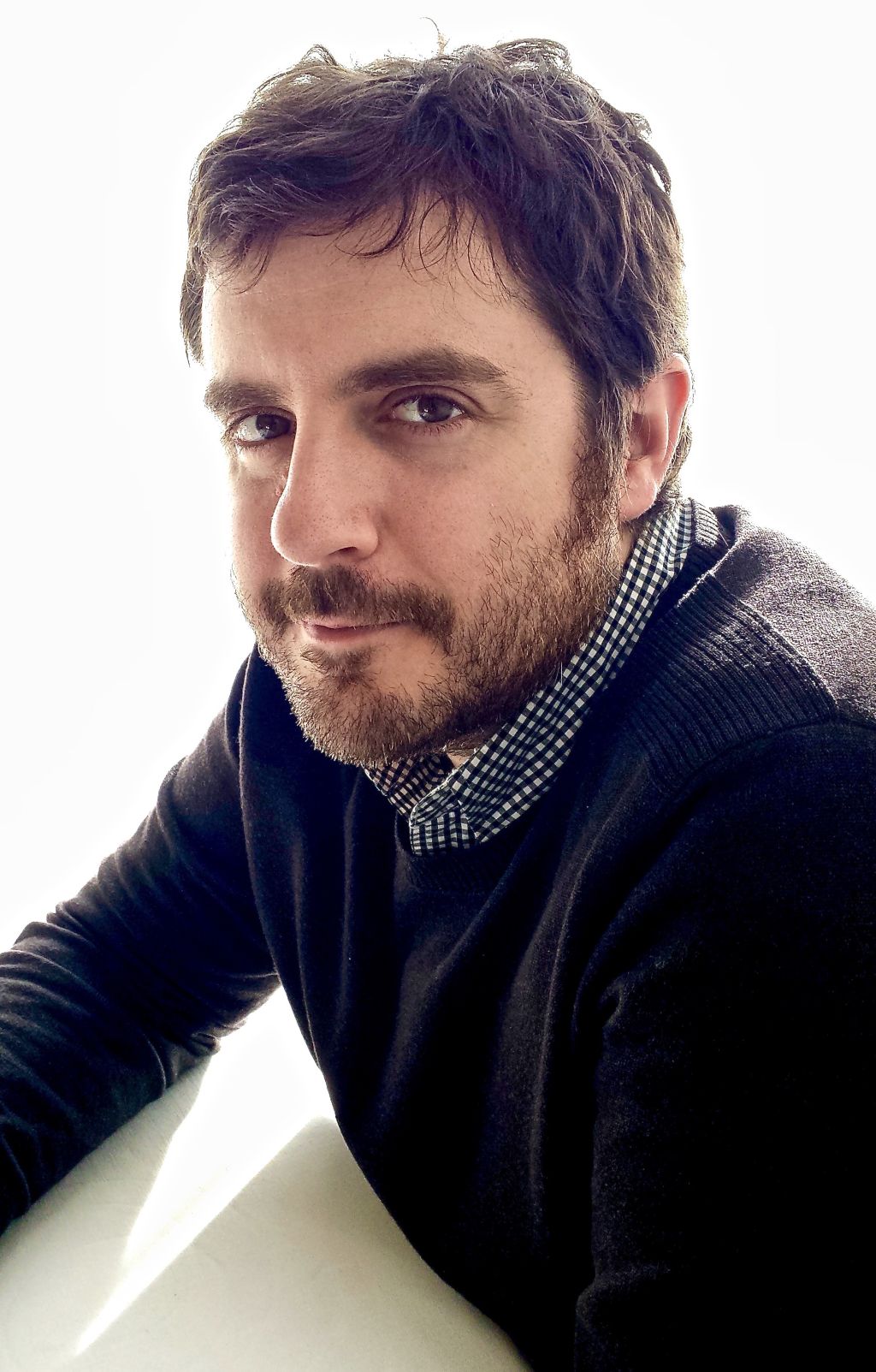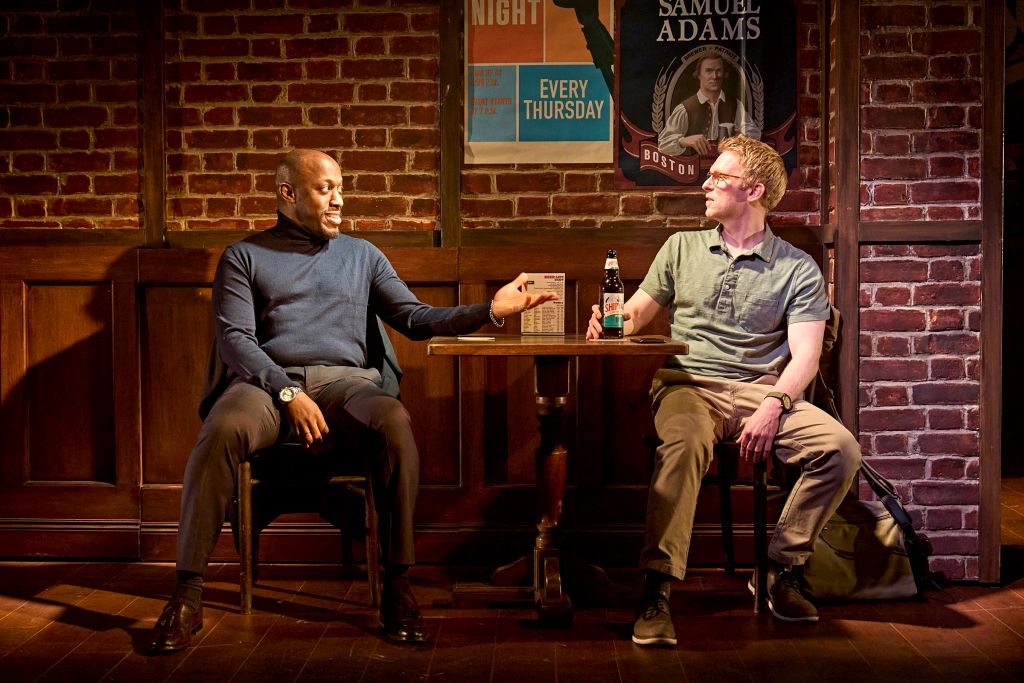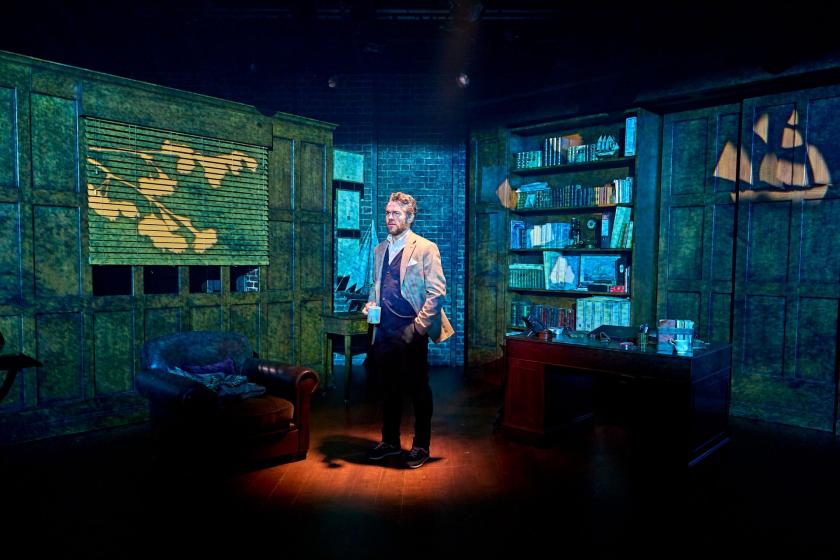I’m writing this in the lobby of the Menier Chocolate Factory a couple of hours before the first preview. I was last here in February for the start of rehearsals. In the time since, I’ve made a handful of, one hopes, helpful adjustments to the script. I’ll let audiences be the judge of that.
But having seen the excellent dress rehearsal, here’s one thing I know for certain: our director Dominic Dromgoole has steered this company through a process of careful, searching, and revelatory work to arrive at a place I find electric. As for everyone working on this show, to a person, I will be forever in their debt.
Meanwhile, on the politics front, back in the US where I live, a Holocaust denier won his Republican primary, so come November he may well be elected governor of a US State. That’s only one glaring example of the fact that things aren’t exactly trending in a pleasant direction. Wave after wave of anti-democratic victories have crashed since I wrote Power of Sail in the late summer of 2017. (Paul Grellong, pictured below)
 If we’re fortunate enough to have you join us at the theatre, I hope you’ll find, as we do, a palpable urgency in telling a story that wrestles with free speech, vile bigotry, and intentional distortions of the truth. But you needn’t fear a droning evening at a lecture; thanks to Dom and our cast and crew, the play’s true nature as a thriller is in full flower.
If we’re fortunate enough to have you join us at the theatre, I hope you’ll find, as we do, a palpable urgency in telling a story that wrestles with free speech, vile bigotry, and intentional distortions of the truth. But you needn’t fear a droning evening at a lecture; thanks to Dom and our cast and crew, the play’s true nature as a thriller is in full flower.
I could spend every allotted word of this column singing the praises of our cast, and believe me, the temptation to do so is real. Their work has moved and consistently surprised me, displaying new colours and moments of light for characters wrestling with subjects of darkness. They also happen to be devastatingly funny, which comes in handy when the play asks them to drive in that gear.
Though it was 2017 when I blew the dust off an ancient draft of the original version of the script, the seed of the idea was planted many years earlier. The origin story goes something like this: I was so intensely bothered by a documentary I saw in 2000 that I’m still processing and responding through a play nearly a quarter century later. You might think my therapist and I would have sorted that out by now, but these times of ours keep bringing it back to the top of my mind.
Before I get much further, I should say that by “bothered” I don’t mean to imply that I disliked the movie. Quite the opposite. Errol Morris’ Mr. Death is one of my favourite films. This documentary about the pseudo-scientific “intellectual” side of the Holocaust denial movement was so eye-opening, so disquieting, that I still think about it regularly. Clearly.
It was not the first time I’d heard about Holocaust deniers, but it was the first I’d been introduced to the fact that their ranks are full of so-called “leading lights” who posture as academics, hold conferences and publish papers. That stuck with me. Couldn’t shake it. On one level everyone knows – though I’d humbly submit it bears repeating, especially now – threats don’t always arrive wearing a hood or carrying a burning torch. As much as people in our orbits can surprise us, and not in a good way, we’re all perfectly capable of surprising ourselves. To paraphrase an observation shared by Giles Terera (Baxter in the play, and pictured above with Michael Benz) during that first week of table work: we all have a bit of the repellent in us.
On one level everyone knows – though I’d humbly submit it bears repeating, especially now – threats don’t always arrive wearing a hood or carrying a burning torch. As much as people in our orbits can surprise us, and not in a good way, we’re all perfectly capable of surprising ourselves. To paraphrase an observation shared by Giles Terera (Baxter in the play, and pictured above with Michael Benz) during that first week of table work: we all have a bit of the repellent in us.
Giles’s insight gets at the heart of how I was most influenced – maybe “haunted” is better by Morris’ documentary; how it shaped the way I wanted to tell this story on stage. Confession time: I left something out earlier. I didn’t mention the full title of the film. It is Mr. Death: The Rise and Fall of Fred A. Leuchter, Jr. The promise of that mouthful, with its nod to the title of William Shirer’s classic book about the Third Reich, is a portrait of a man. But its frame soon widens to become a deeper, richer work about truth, deception, betrayal and, at the molten core, the lies we tell ourselves. We all tell those, don’t we? Whether about the justifications for our actions, the motives behind them, or even whether the world around us can possibly be, I mean really and truly be, in as deadly a precarious place as it seems.















Add comment